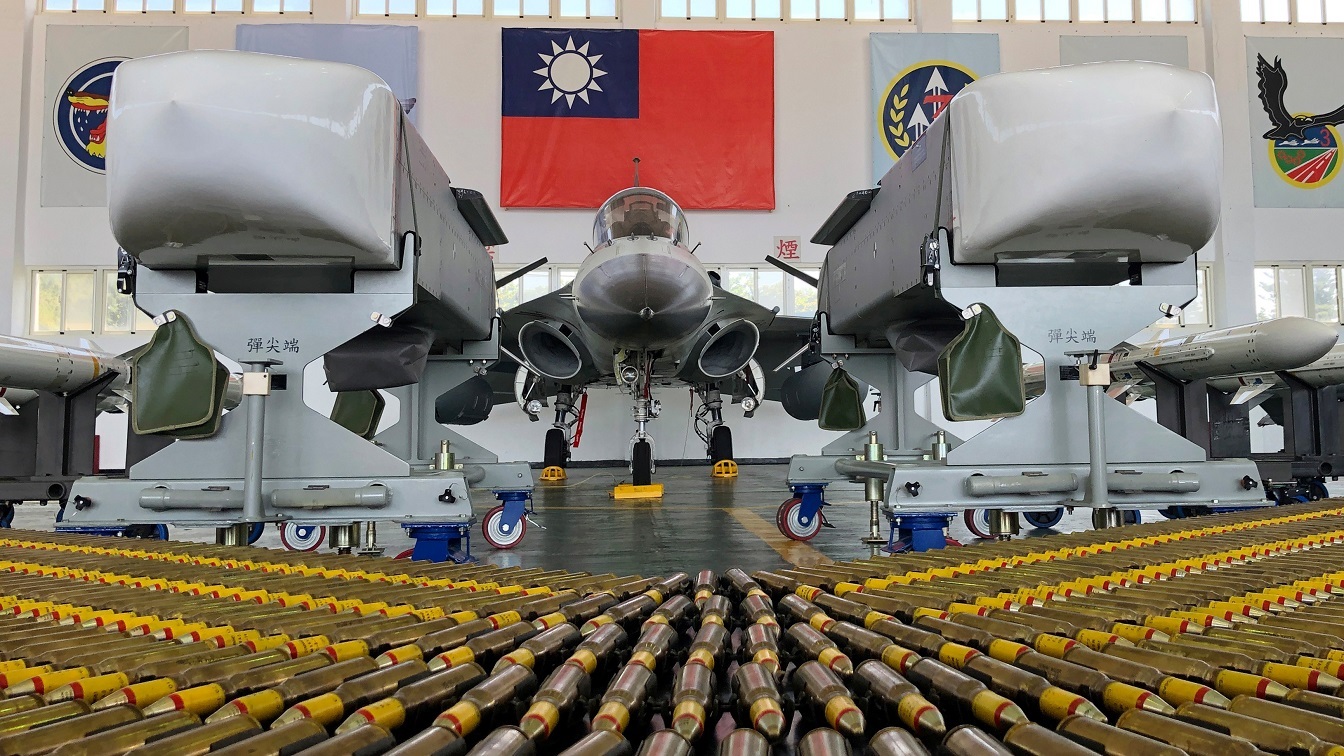QUEMOY, TAIWAN—Landing at Kinmen Airport on Quemoy, the epicenter of the Eisenhower-era Taiwan Strait Crises, is to see the spectacular changes recent decades have brought. Just over six miles off Quemoy’s coast are the skyscrapers of Xiamen, a Chinese city that is now home to more than five million people. Put another way, Newark, New Jersey is almost twice as far from New York City as Quemoy is from mainland China.
There is a façade of normality on Quemoy. Chinese citizens can acquire an entry permit and take a 30-minute ferry ride. A decade ago, the Taiwanese government removed beach obstacles erected to impede landing craft. I purchased a ticket for a local airline and used a local equivalent of Airbnb to book a room at a bed and breakfast without the need for any special permit. Much of the island’s military past are now tourist attractions. The government welcomes visitors to a civil defense tunnel, howitzer position, and even a former underground naval base. Sculpture gardens extend into the waters between Taiwan and China. I passed a half dozen 7-Eleven’s on the road from the airport to my beachside inn.
Still, beneath the surface, tension looms. As the passenger flight descended into the airport, the pilot warned passengers not to take photographs out the window because the airport was also a civil defense site. Signs warned both locals and tourists that the beaches facing mainland China were off-limits for swimming and leisure activities.
Perhaps placid calm will soon end. Diplomatic tensions loom. While the United States maintains a policy of strategic ambiguity toward Taiwan—four statements by President Joe Biden notwithstanding—Chinese President Xi Jinping has dispensed with any pretense of ambiguity. “The historical task of the complete reunification of the motherland must be fulfilled, and will definitely be fulfilled,” he declared October 9. Taiwanese officials are correct to ask the utility of American ambiguity when Beijing appears increasingly determined to annex Taiwan.
U.S. intelligence officials increasingly talk about 2027 as the make-or-break year for Taiwan. As my colleague Nicholas Eberstadt points out, China population will soon decline if it is not already shrinking. At present, the chief impediment to any invasion is less lack of desire than a lack of landing craft, a deficit the People’s Liberation Army will likely overcome within five years.
Defending Taiwan is an American interest. It is also morally correct as Taiwan, Xi’s claims aside, has not historically been part of China. If the United States wants to avert war, it must clarify to China its costs. Not only should the White House and Congress signal to Beijing that the United States will fight, but it should also make clear that any fight over Taiwan would not be limited to Taiwan itself.
Indeed, while the Biden administration has acted admirably to counter Russian aggression toward Ukraine, after fumbling the Russian threat in the first months of the Biden presidency, its greatest continuing mistake has been to assess Ukrainian weapons requests to ensure that Ukraine cannot use such weaponry to attack Russia proper. This is a mistake, as it reduces the cost of war to Russia.
The United States should make so much mistake with Taiwan and China. Xi—or his successors—should recognize that if they seek to seize offshore Taiwanese islands like Quemoy, Xiamen’s skyscrapers, banks, and businesses would fall under an artillery and missile barrage.
If China goes further, author and our very own Contributing Editor, Gordon Chang, has suggested that Taiwan could retaliate via a missile strike on the Three Gorges Dam. “Almost 30 percent of China’s population, therefore, is at risk of a catastrophic failure of the structure, such as one caused by a missile strike. That means Taiwan possesses a conventional weapon that packs the wallop of a nuclear one,” he noted. Chang is right. While President Ronald Reagan interceded to prevent Taiwan from developing its own nuclear deterrence—a decision that did not age well given China’s belligerence, peace across the Taiwan Strait requires a willingness to bring the fight and massive destruction to China itself.
If U.S. intelligence assessments are correct and the United States has just five years to avert war across the Taiwan Strait, then it is essential to make clear that the war for Taiwan will not simply be fought on its eastern side of the Taiwan Strait. Containing a fight for Taiwan to Taiwan itself means forfeiting deterrence if not guaranteeing war. Using China’s own development against it is, in contrast, the best opportunity to avoid a fight the existing world order and international economy cannot survive.
Now a 1945 Contributing Editor, Dr. Michael Rubin is a Senior Fellow at the American Enterprise Institute (AEI). Dr. Rubin is the author, coauthor, and coeditor of several books exploring diplomacy, Iranian history, Arab culture, Kurdish studies, and Shi’ite politics, including “Seven Pillars: What Really Causes Instability in the Middle East?” (AEI Press, 2019); “Kurdistan Rising” (AEI Press, 2016); “Dancing with the Devil: The Perils of Engaging Rogue Regimes” (Encounter Books, 2014); and “Eternal Iran: Continuity and Chaos” (Palgrave, 2005).
Want More 19FortyFive articles, news, and analysis on the top military, defense, national security, as well as politics and economics news? Make sure to follow us on Google News, Flipboard, YouTube, Facebook, Twitter, and Linkedin. Also, please don’t forget to sign up for our newsletter here. You can also find our code of publishing ethics and standards here.

